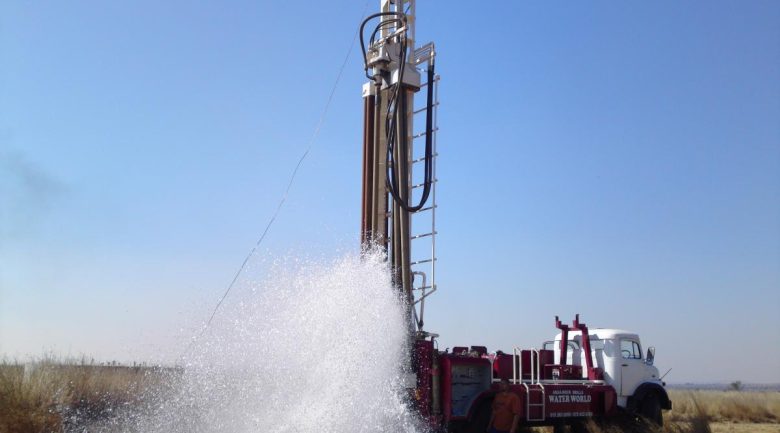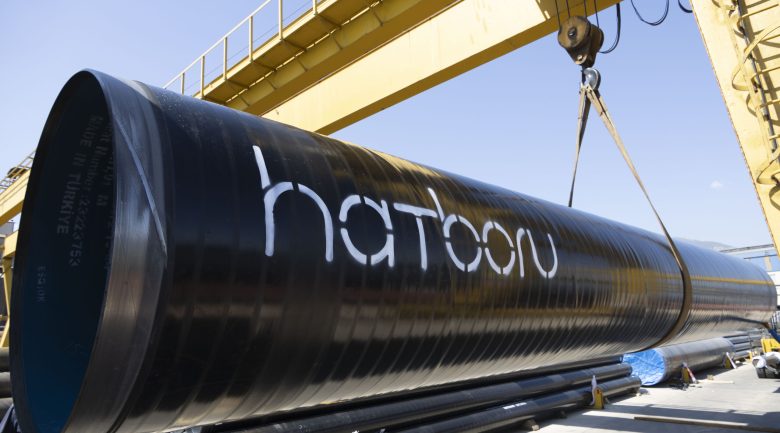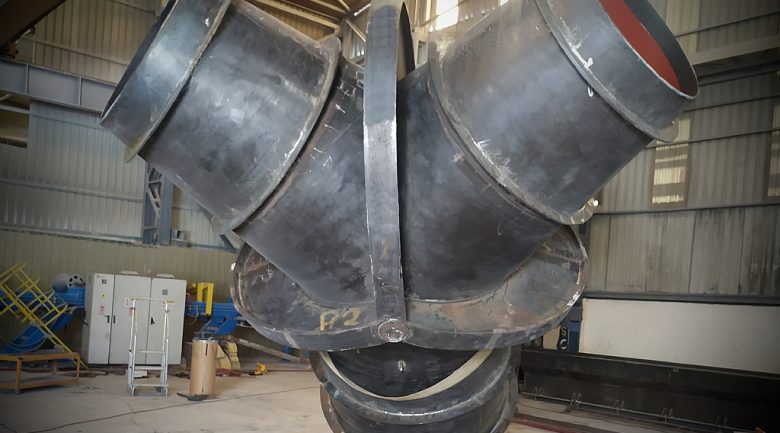Corrosion Wars: Galvanized Steel Pipe vs. Coated Steel Pipe? Cost, Lifespan, and the Right Selection Criteria
Steel pipes are indispensable in the drilling and irrigation sectors when high mechanical strength and deep well applications are concerned. However, the greatest enemy of this powerful material is corrosion. In this article, Hatboru analyzes the two main methods used to extend the life of the steel pipes we sell—Galvanization and Special Coating—comparing which application excels under which conditions.
Two Main Weapons in Steel Pipe Protection: Galvanizing and Coating Technologies
The primary goal of corrosion prevention for steel pipe corrosion is to sever the contact between the pipe surface and the abrasive groundwater. Both methods achieve this goal but through different mechanisms, and Hatboru’s steel pipe solutions ensure optimal performance for both.
Galvanized Coating: The Sacrificial Anode Principle (Cathodic Protection)
Galvanization is the process of dipping steel into a molten zinc bath (Hot-Dip Galvanizing), creating a thick zinc layer on the steel surface.
- Protection Mechanism: Galvanization serves as both a barrier and provides cathodic protection. Zinc is more reactive than steel (it’s the sacrificial anode). If a scratch or damage occurs, the zinc sacrifices itself to continue protecting the steel from rusting.
- Advantage: High damage tolerance and low initial investment cost. It is a reliable solution for standard, large-surface, and structural applications.
Epoxy and Special Coatings: The Flawless Physical Barrier
Special coatings, based on epoxy or polyurethane, are precisely applied to the steel surface via spraying or baking.
- Protection Mechanism: These coatings form a chemically resistant, thick, and impermeable physical barrier around the steel surface. This completely blocks water and oxygen from reaching the steel, halting the corrosion process.
- Advantage: Offers the longest theoretical lifespan in environments with very high chemical aggression, provided the barrier remains intact.
Cost, Lifespan, and Risk Analysis: The Right Selection Criteria
The choice of steel pipe coating comparison depends not only on the cost but also on the installation risk and the chemical aggressiveness of the water on site.
| Criterion | Galvanized Steel Pipe (Hatboru) | Coated (Epoxy/Polyurethane) Steel Pipe (Hatboru) |
| Primary Advantage | Tolerance against Installation Damage & Cathodic Protection | High Chemical Resistance |
| Initial Investment Cost | Moderate | High (Requires specialized application) |
| Resistance to Water Chemistry | Moderate to Good (Sacrifice rate increases with very low pH) | Very Good to Excellent (If the barrier is intact) |
| Installation Risk | Low. Scratches can self-heal (until the zinc is depleted). | High. Barrier integrity is instantly compromised by scratches at threaded connections. |
| Typical Application | Standard water wells, structural projects requiring depth. | Industrial wastewater, extremely aggressive chemical fluids. |
Conclusion and Hatboru’s Area of Expertise
The preference for steel pipe coating depends on prioritizing either mechanical tolerance (Galvanized) or chemical resistance (Coated). Hatboru provides both coating types to the highest standards.
If your well’s depth and mechanical constraints make steel pipes absolutely mandatory, choosing the right coating based on your project’s risk assessment will minimize your maintenance costs.
Important Note: However, if your well depth is not critical, and your main challenge is extreme water aggressiveness and maximizing well casing longevity, our Hatboru PVC Drilling and Column Pipes offer a corrosion-zero, maintenance-free alternative that is structurally designed to guarantee the lowest total cost of ownership (TCO) in the long run.
Contact our technical team to determine the specific needs of your project and get expert advice on steel pipe coating comparison or PVC selection.




 © 2023 Hatboru. Her hakkı saklıdır.
© 2023 Hatboru. Her hakkı saklıdır. 
